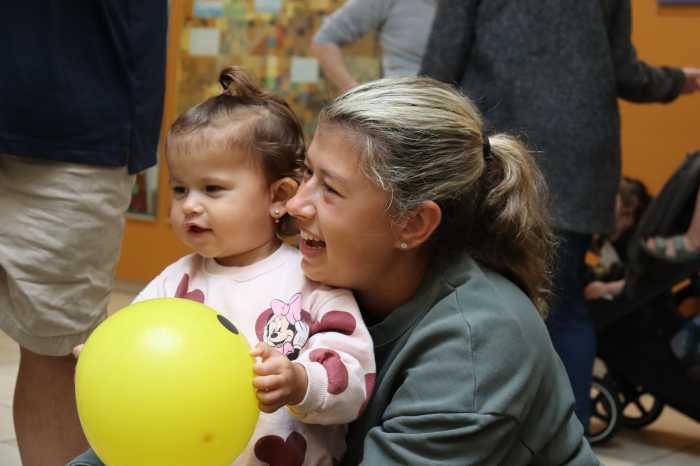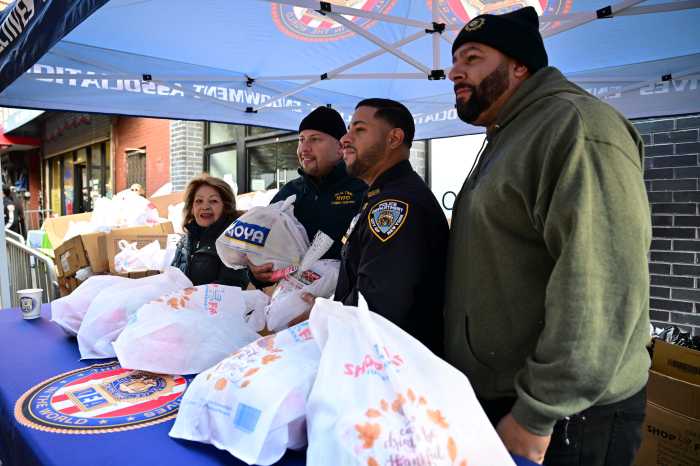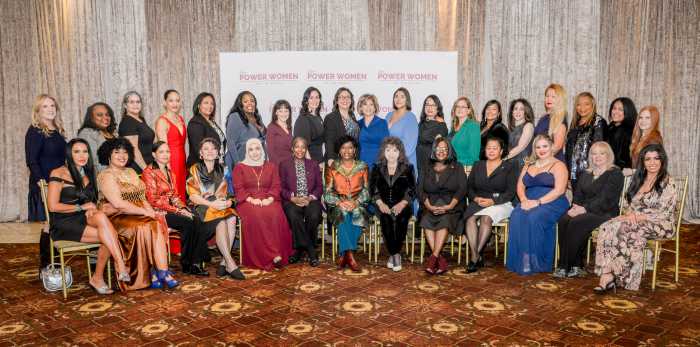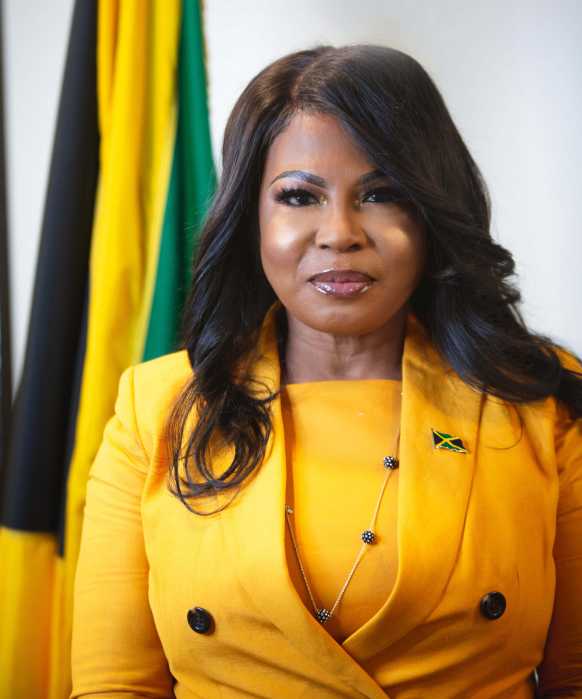When “The Other Two” premiered on Comedy Central in January 2019, critics gushed. The sublimely barbed sitcom, about snarky, twenty-something siblings coping with the meteoric success of their popstar kid brother, was hailed as “This year’s first great new comedy.” The showbiz satire — created, written, and executive produced by former “Saturday Night Live” head writers Chris Kelly and Sarah Schneider — is back for a third season on May 4.
The titular two are Brooke Dubek, played with savvy comic flair by Heléne Yorke, and her brother Cary, infused with affable gawkiness by Drew Carver. In season one, they are forced to rethink their life choices after their brother (Case Walker), known as ChaseDreams, becomes a viral singing sensation.
Brooke’s lackluster dancing career has foundered, and she is now a real estate agent, sleeping on the floor of one of her listings. Cary, who is gay but semi-closeted, scrounges for two-bit acting gigs in New York City.
The show was snapped up by HBO Max for its second season and found a larger audience, shifting focus from the Justin Bieber-esque Chase to their newly famous mom, Pat (comedy icon Molly Shannon), who has a wildly popular talk show in the vein of Ellen or Oprah. Brooke becomes a manager for both Chase and Pat. Cary snags a plum role in his first feature film, titled “Night Nurse,” but the kicker is that the first table read is scheduled for March 12, 2020.
Season three returns to HBO Max (soon to be rebranded “Max”) and picks up a few years later, when the siblings have finally achieved a level of success. Cary is thrilled that “Night Nurse” is about to premiere. Brooke contemplates leaving “the industry” for a more satisfying, altruistic career. Gay City News recently chatted via video call with Chris Kelly about evolving the characters, skewering pop culture, and the unabashed sexual gay content. The following interview has been condensed and edited for clarity.
David Kennerley: Congratulations on season three. After all you’ve been through, with switching TV outlets, Covid delays, and juggling schedules, how does it feel to finally be launching the new season?
Chris Kelly: It’s a big weird season, so we’re excited for people to see it. And it’s surreal because we’re still editing the later episodes as it’s coming out, so it feels a bit nerve-wracking.
I’m impressed by how you and Sarah were able to evolve the show’s characters. In season two, Chase’s singing has taken a back seat to endeavors like guest-editing Vogue. Pat has the #1 talk show in America. How do you balance introducing new characters and plot points while staying true to the show’s premise?
It’s tough because when you introduce more characters, you don’t want the other characters to fall by the wayside. One thing that’s helpful is the expanded run time. At Comedy Central it was 21 minutes and now our episodes are closer to 30, so there’s more room to tell more story. The premise has always been about how Brooke and Cary compare themselves to others. In season one they were comparing themselves to Chase, who was “above them.” Then in season two, it was their mom who was above them. And this season, it’s slightly less obvious who they’re comparing themselves to, but it becomes clear as the season progresses. We like the idea that even though they have a lot of success now, they still find ways to doubt themselves, to look around and be like, “Am I doing what they’re doing? Am I not doing enough? Am I doing too much?”
Can you talk about the decision to fast-forward three years for this season?
At the last minute we decided to end season two with a COVID joke, which we were nervous about because weren’t sure about tying ourselves to COVID. We ended up jumping ahead a couple of years because we didn’t want to depict life during COVID. Plus, that solved the problem of Case Walker growing up so much that he couldn’t play a 15-year-old anymore. We were like, “We need to make him an adult because he’s 20 in real life now.” So it all kinda worked out.
You saw it more like an opportunity as opposed to a setback that he aged so quickly?
Yes, it allowed us to play in a different area of pop stardom and consider what happens when these kids turn 18 and can now be commodified in a completely different way, and market him as an adult. Chase is used to being this little kid bopping around and told to go here and go there. What if he was mature enough to do his own thing and have his own opinions? It allowed us to explore new avenues.
The show skewers many hot-button topics like the cult of celebrity, the entertainment biz, LGBTQ rights, the women’s movement, and even frontline healthcare workers. How do you come up with your targets for skewering?
They usually come from a place of story first. We’ll know what Brooke’s and Cary’s stories are for the season — what their goals, hopes, and fears are. And then we try to find the funniest way to tell those stories, episode by episode. For example, we wanted Cary to get deeper in into acting, but no job he gets is ever enough. He wants more and more.
We also wanted him to be dating this season. We came up with the idea that he’d be dating a method actor who’s always in character for a role, which allowed us to ask, “Why is Cary dating a guy he can never truly communicate with or even have sex with?” But Cary is so horny for the idea of being a real actor that he’s obsessed with this guy who is a real actor. It’s a funny through-line that allows for a lot of good episodic comedy.
I’m amazed the show is so fearless about gay sexual situations that might shock some people, or at least straight people. How do you decide how far to push it?
It’s a bit odd even hearing that question. I’m thinking, “What sex scenes? What is so crazy about them?”
Compared to most other TV shows, except for, say, “Elite” or “The White Lotus,” it feels like it’s pushing boundaries, in a good way. Like the scenes where Carey gets frisky with his “straight” roommate on the living room couch while watching “Survivor.” Or when Cary takes a picture of his “hole” in an airplane toilet to share on a hookup app. You don’t see that every day on TV.
I just don’t think about it that much. We write bluntly about what we want and that’s all there is to it. And if it’s shocking or feels like, “Whoa, this doesn’t happen on TV,” then that’s an indictment against the lack of content like that on TV. I don’t think we’re writing anything all that crazy. Certainly in the writers’ room we aren’t saying, “What shocking thing can we have Cary do next?” We are writing a story about a gay man, so naturally his sex life, dating life, work life, and his humiliations will often be gay-centric.
Have you ever gotten pushback from the top brass like for, say, showing Cary bent over naked begging to have sex?
No, not at all. It never felt like, “Please Mommy and Daddy let us say this.” It was very much like, “This is the show.” The only pushback was when we said “faggot” in season one, but rightfully so because it’s a slur. The network wanted to bleep out the word, and we had to make a case for keeping it. We wanted the rude power of hearing a woman say that to Cary.
In the first two seasons, Cary is clueless when it comes to the LGBTQ social scene in New York. Like the episode where he relies on Brooke to tell him where the gay bars are located near his own neighborhood. Does he evolve in season three in terms of gay worldliness?
Yes, a little bit. I think Cary was sort of stunted sexually in season one. We talked about the ways to move him forward. This season he’s more comfortable in his sexuality. There’s an episode where he visits Stonewall and even uses the gay community. We have many gay stories to tell with Cary at the back half of the season.
For me, what makes the show so appealing is that these flawed characters show their vulnerable side. They’re often in situations which are downright embarrassing. For example, Brooke and Cary sneaking through someone else’s limo to get on the red carpet, or Cary reading for the micro-role of “Man at Party Who Smells Fart.” They put on a brave face and soldier through. Do you intentionally create situations that display both their desperation and humanity?
Definitely. When our characters are doing bad things it’s often because they’re afraid, anxious, or self-conscious about something. So yes, we do like to humiliate them or show them acting poorly. But they’re not monsters. You understand their motivation. As long as it’s coming from a place of humanity, I think they get away with it. And because Heléne Yorke and Drew Tarver are so likable and bring such empathy and groundedness to their performances, you root for [Brooke and Cary] even if they’re making bad decisions.
Is everything scripted or is adlibbing allowed?
I feel like the fun answer should be, “There’s adlibbing left and right!” Truth is, it’s pretty scripted, mostly because the show is so dense and so many throwaway jokes are connected to another thing later. It’s such a puzzle that we put together. And because the schedule’s so tight, we’re often racing to simply get the scripted lines on camera. But sometimes, because we have such good improv comedians, we’ll do a wild take. If Molly Shannon has a big blowup scene or fight scene, we let her improvise and go berserk to get herself there.
Any buzz about a potential season four?
Buzz? We don’t know. Sarah and I aren’t sure yet if we will do another season. We’re literally still editing episode eight right now. So it’s very weird to be like, “Hooray, it’s out in the world!” when secretly we’re thinking, “Oh God, we’re not there yet.” So I think we’re going to finish season three and spend some time with our families for a bit. The buzz is rest and dinners with our husbands.
The Other Two | Max Original | Streaming on HBO Max | Season Three debuts May 4













